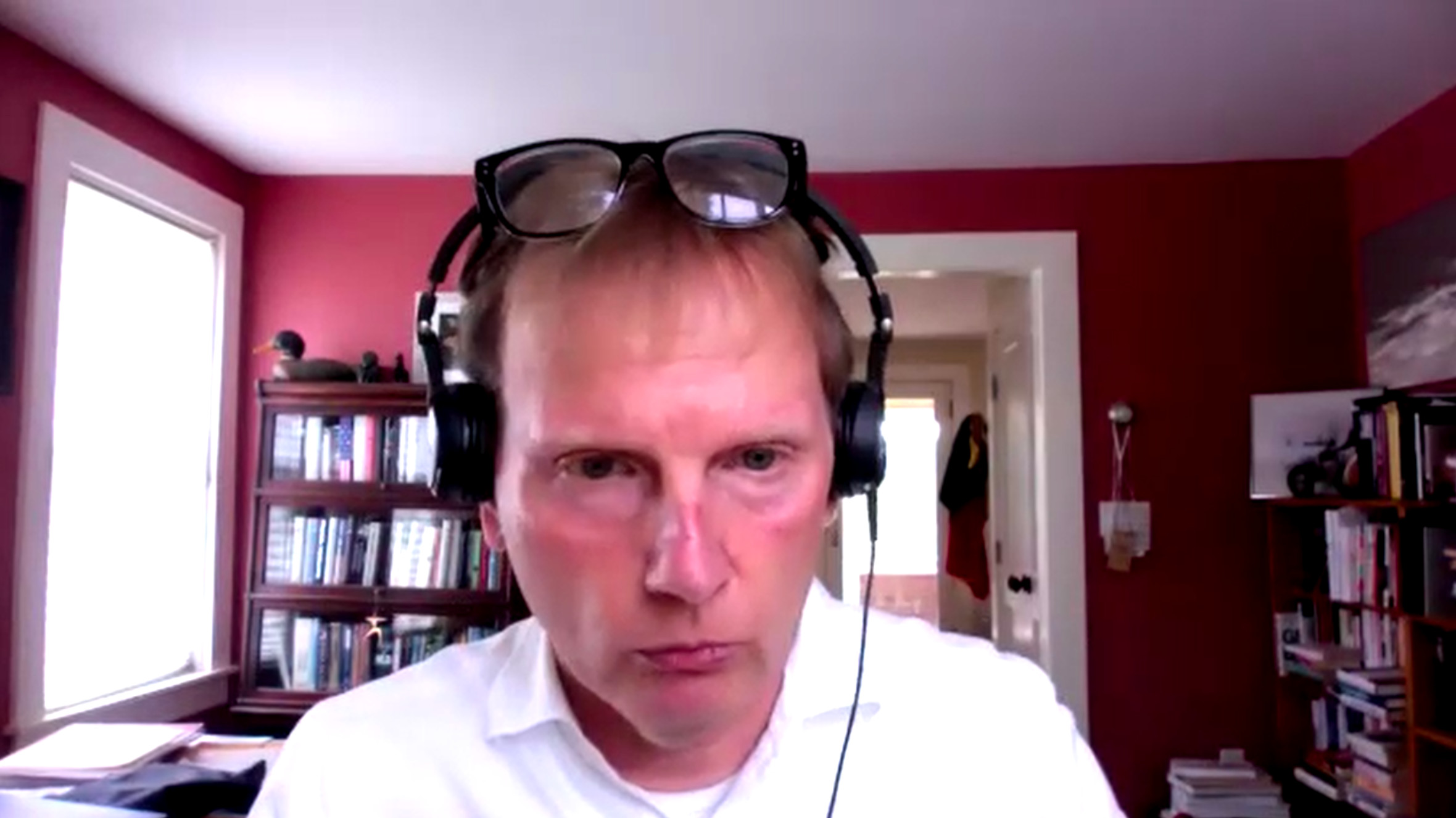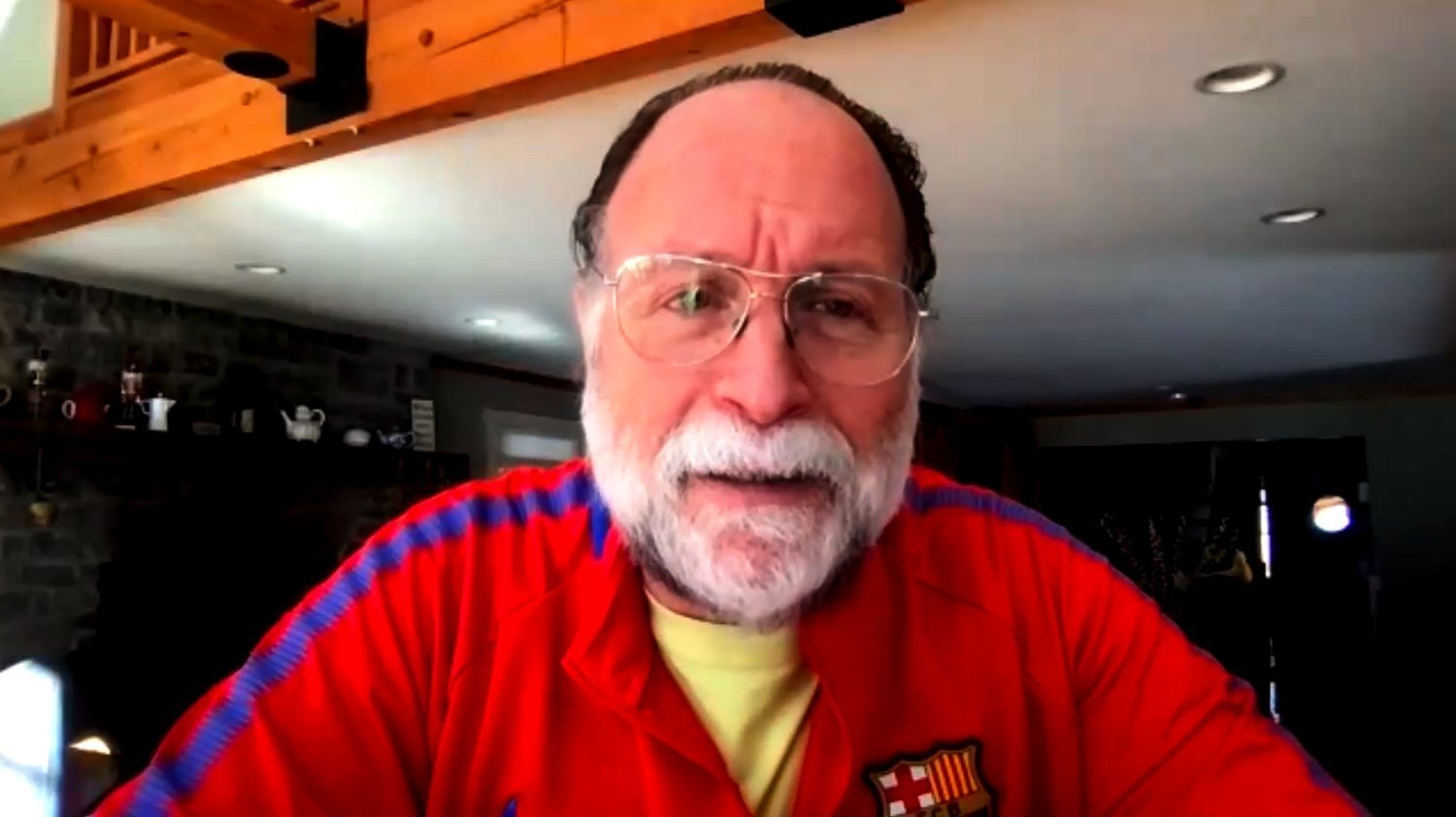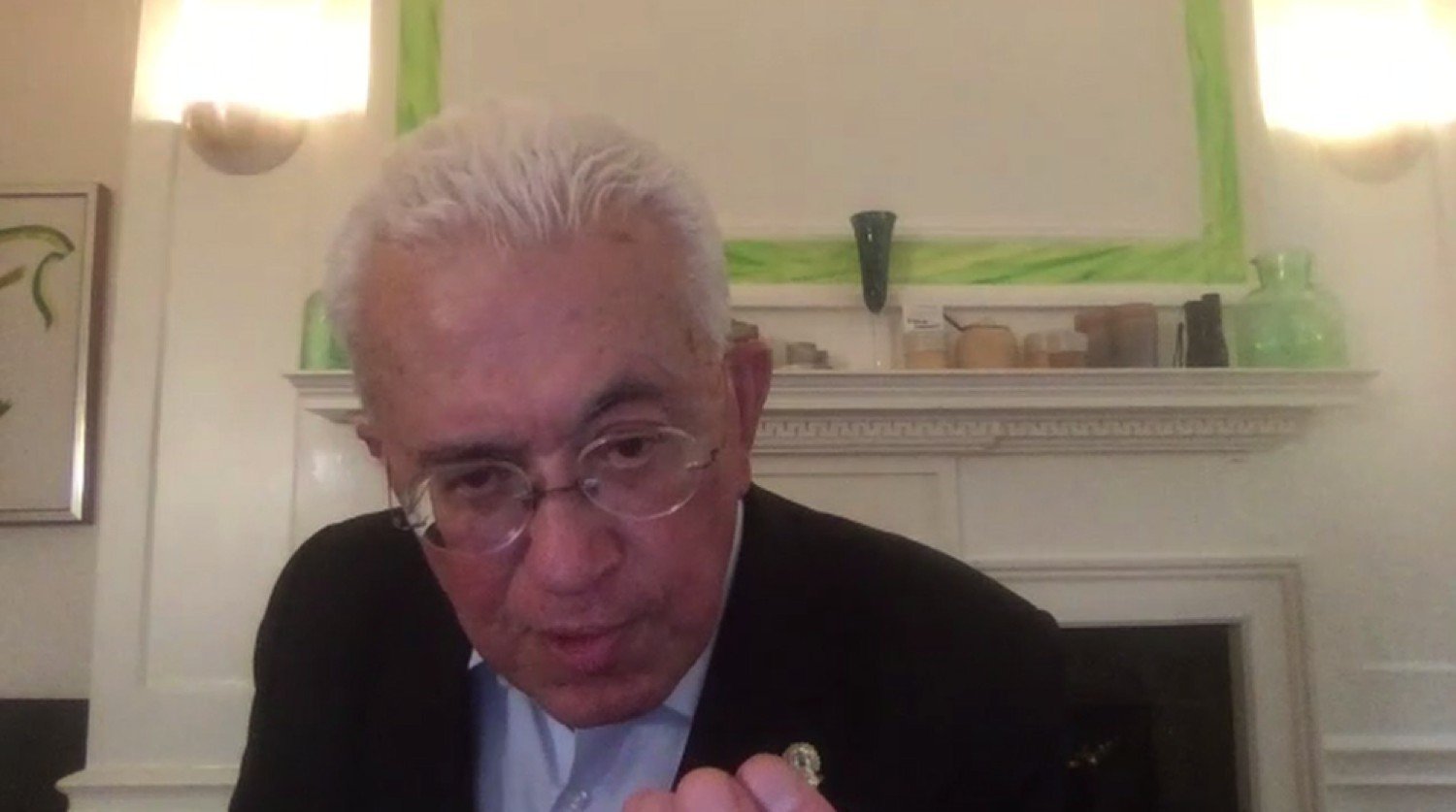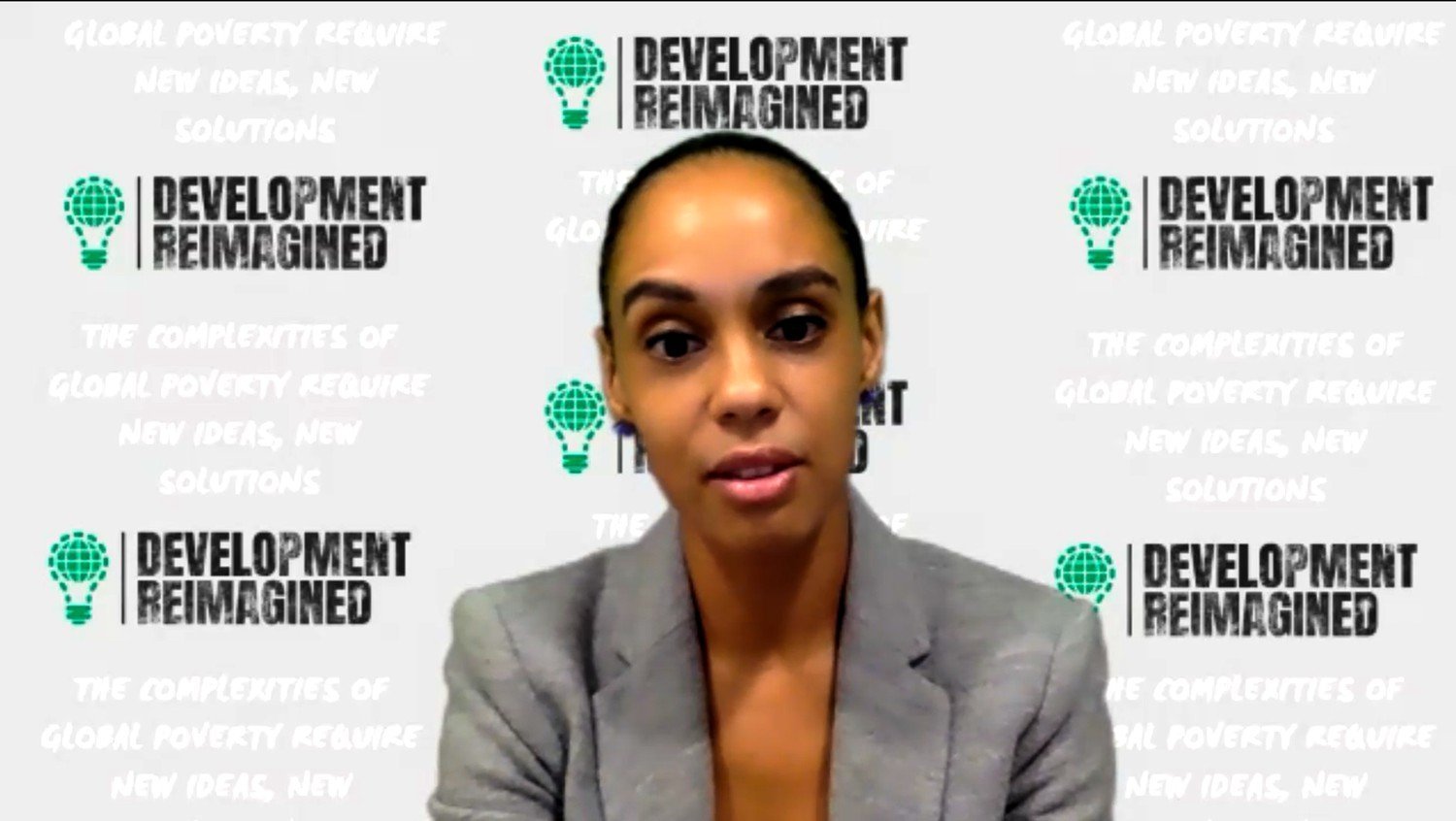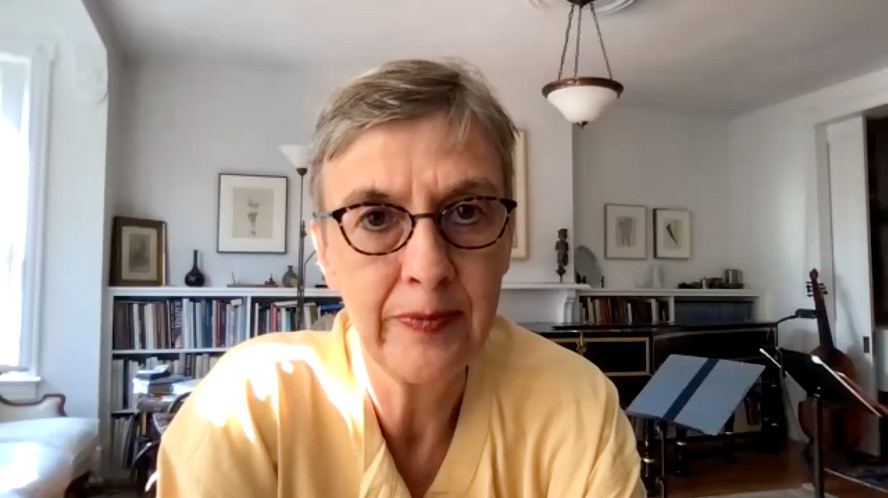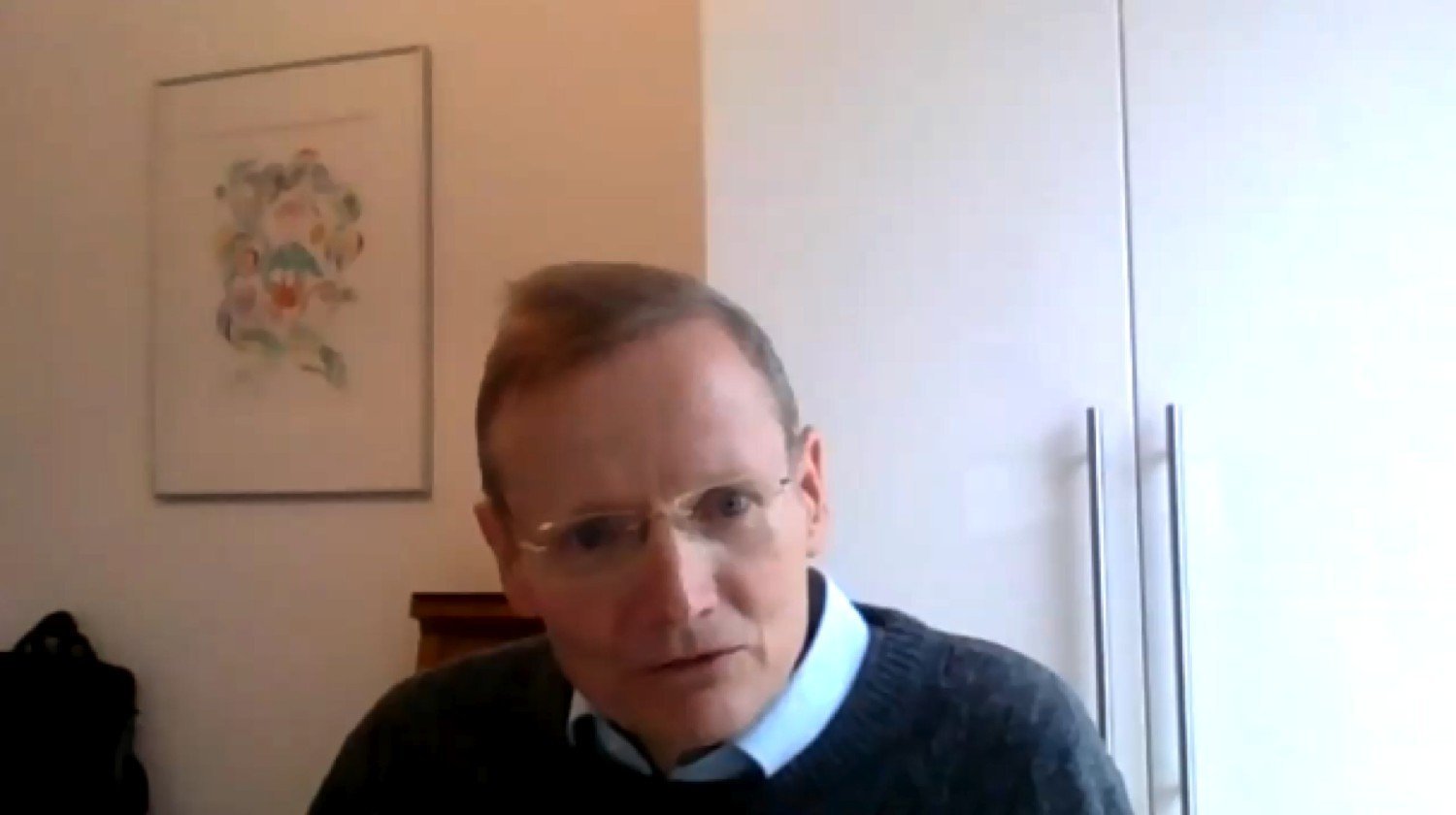Frank Van Gansbeke
Belgian. Business and Finance Professor of the Practice, Middlebury College (US). Forbes online Contributor
1. Why does economics matter?
By the way, a pleasure to be here, too, William. So thank you for the opportunity. So first of all, if we start on that question again, that very elementary question, it is a foundation for leading and enjoying a decent quality of life on Earth. Full stop.
And if we define economics as somewhat an allocation of scarce resources to produce a certain set of goods to satisfy the needs of the private citizen, I think one can imagine - one can easily see - that the organization or the setup or the deployment of that system is primordial in terms of the outcome for quality of life, of the individual, stability of the system, the society, balance of the environment. But also, I think to the extent that concerns are being given to people that are in the fringe of society, and so these are also for the people like the elderly, the deprived, the sick, and the immigrants. So that’s why, you know, economics such as a very important kind of a place of light or role in our society.
2. What are the differences between economic science (academic economics) and economic engineering (policymaking)?
Yes. So again, I would maybe start off with the distinction that the policy making is making, whereas most of the time is actually following the theory, again in general. So I will actually add on with two exceptions that confirm this rule. But if we think back - so it has been recently in the 20th century, unfortunately, what I deem to be a failed attempt on the part of the economics to pursue a quantitative kind of science, and so it was actually based on advancing some hypothesis, which was then followed up with some empirical observations. And then from that you extrapolated that theory in general. But in the process you were also including some major assumptions about your modeling. And also you did, by doing so, you were extrapolating from a finite kind of sampling of the population.
But that aside, I think if we come back to this what I said earlier, I think the theory was always preceding the policy making. If you look in history and if you look at some major steps. So it was like Plato in the Republic. He already advanced some notions of the required skills, the technique, in Greece, in order to have a stable society - I think for individuals to enjoy stable society. If we move forward, then we had maybe mid 19th century, we had classical economists with Ricardo and Adam Smith. In 1776, of course, Smith publishes The Wealth of Nations, whereby mostly both economists actually were advancing the notions of the benefits of a free market and free trade. And, then at the beginning of the 19th century, again, you had another theory was developed by the Austrian school, again epitomized by a very important Austrian economist, Friedrich Hayek. And, actually he was designing a theory and the first one actually to establish a theoretical concept about the business cycle, about capital formation, about even a monetary theory. What was interesting about it was also the psychology that was incorporated into his, you know, theory. So, he advanced the importance of motivation, entrepreneurial spirit as those were features that actually we could be determining the outcome of society, if not the prosperity of that society.
And, that was actually that theory, that Liberal theory was actually endorsed by the Chicago School of Economics in the 70s, again advanced by Milton Friedman. Those were the foundations for the policies. Again, you see that sequence: first the theory, and then the policy making and the engineering for President Reagan and PM Thatcher in the UK.
Now I said that maybe there are two exceptions to that rule. These were two major crisis situations. So the first one was in the 1930s where he had the largest financial collapse or crisis that we’ve ever faced in history, in which John Maynard Keynes advanced his general theory on money and in which he was actually extolling the virtues of deficit spending by the government. So this is actually the first time that you had reversed this sequence - although Keynes was actually going back and forward between designing theory and policymaking. But in the face of this major crisis, you had policy making that was actually advancing the theory.
Now, the second element concerns our current crisis - we have this multiple crisis, a climate, health pandemic or even the one about the financial markets in stability. I think, you know, we have this crisis moment where we actually have to acknowledge that we run out of policy, or at least some tools or some instruments, and we are designing and we engineering policy that is actually preceding theory. So this is another kind of occasion because we have been overtaken by the facts, and the theory could not keep up with the facts. And as such, we have to try and keep up with this policy making.
3. What role does economics play in society? Does it serve the common good?
Yes. So again, maybe referring back to our first question. So we know what economics is trying to pursue, as I said, faced with scarcity of resources, and it’s trying to come up with a certain allocation that fits the production of goods, services and inputs and services to benefit the primary needs of the citizen. I think you could see that the way you elaborate on it or the way you actually deploy it is very important as it determines the physical and the emotional wellbeing of the citizen. Again, it’s important for the way you have that stability in your society.. You have that balance in your environment, and you can also ensure at least to what extent you are making assurances for the people that are deprived and that maybe live on the fringes of society.
To the second part of your question, the commons, the commons actually feature hardly in any of the context. So if we define commons as your access to clean water, clean soil, and clean air. In essence. So there is also, by extension, you could also talk about the justice system within that as a public good and also health. Those are the commons. But I would come back on these three elements: clean air, clean soil, and clean air. So that has not featured a lot in theory, it has not featured even in our policy making. And you could wonder, why would that be? Why would we make so much abstraction of these commons? It is because commons don’t have a voice, they don’t have a representation. We actually use our commons for short term profits. So we extrapolate these primary resources without any consideration. Again, for the access on this clean air and clean soil and clean water. Just think of fracking where all the implications are for our commons. Just as a quick example.
It’s also the short term, you know, over the intergenerational kind of considerations. So in our sheer blind pursuit of profit, we actually make full abstraction of the value of common. It’s also indicative the first Nobel had been awarded to Eleanor Ostrom in 2008, and that was a person who actually did all the research on the commons. And, prior to that, even 15 or more Nobel mandates had been awarded to members of the Chicago School of Economics, and there is hardly any mention of the Commons in their work.
4. Economics provides answers to problems related to markets, efficiency, profits, consumption and economic growth. Does economics do a good job in addressing the other issues people care about: climate change and the wider environment, the role of technology in society, issues of race and class, pandemics, etc.?
So I referred earlier to the extent that our current system actually is faced with, you know, this multiple crisis, and I call it the six headed crisis. So we have a crisis of climate. We have a crisis of public health pandemic, we have a crisis of the loss of biodiversity. We have a crisis of social and racial injustice. The fifth crisis we have is one of distrust in international trade and democratically established institutions. And last, but not the least is our the the story of the crisis that we face in the financial markets or at least the instability that’s currently inherent in our markets and our infrastructure. So if we look at each of these crisis, we can actually then compare to what extent our economics actually addressed or sufficiently addressed or neglected those outcomes.
Right. Let’s take example of the biodiversity. So the biodiversity is an outcome that we have seen since 1945, after the outcome of the Second World War. We have actually pursued an economic system with full disregard of our nature or with regard to our ecosystem. So there is a total absence of making our economic system nature-centric. If you look at climate, again since the end of the Second World War, there has been a full pursuit of growth that was actually backed by the extraction of oil and gas. And this extraction took place with an externality. So, the carbon dioxide, or the greenhouse gas, that actually was an outcome of that pursuit. Yet we failed overall, not withstanding the fact that we had the scientific knowledge. We failed to incorporate that externality into our overall allocation process, the way we allocated capital was in a carbon-agnostic price allocation system.
Now, if we take the other elements we have, for example, the social and racial injustice, the social injustice. I would say it’s also the fact, for example, that trade unions have no longer any say. So, I think that’s also fair to say that the individual employee has no longer representation by a larger group or group that is actually representing the interests of that employee.
With respect to racial injustice, we have seen that there has been a weaponization of the police force, with somewhat indiscriminate kind of force being applied to minorities. So when we look back at the public health endemic we have seen in the runup to the public pandemic of five years prior that have the big Pharma have actually undertaken more share- buybacks -more dividend payouts to shareholders - than they have actually spent on R&D, notwithstanding the warnings about forthcoming pandemics. But yet we still saw these outcomes.
So these are some examples where you see that there’s been this disconnect between the outcomes that we currently face within the forms of the six heated crisis and the fact that we fail to address them in a fundamental, systematic matter in our economic setup.
5. As we live in an age of economics and economists – in which economic developments feature prominently in our lives and economists have major influence over a wide range of policy and people – should economists be held accountable for their advice?
Yeah, this may be a very tough one. Again, given the preponderance of spin doctors, the people that actually advise elected officials. So, I would make the case that there would be actually two Parliament disclosures made by spin doctors that there is no explicit absence conflict of interest on the subject matter they’re advising upon. There’s an example in the excellent Oscar winning documentary The Inside Job, by Ferguson. And there is a case when they’re focusing on Iceland and how Iceland actually fell prey to the outcomes of the 2008 financial crisis. And before, in 2006, I think there was a booklet written about the appeal of Iceland as an investment destination. And as it happens, that book was written by some Columbia Business School economists, and that a booklet actually was commissioned by the local Chamber of Commerce.
Yet nowhere was there to be seen that actually that there was paid research. The booklet was commissioned and paid for by this local Chamber of commerce. So there was a very blatant conflict of interest which was not made apparent. Hence the importance of those disclosures. But ultimately I would actually postulate that the accountability should be held by the intellectual individuals. So it is those people that actually select their spin doctors or select the advice of the economists in order to come up with their policy decisions, and it’s ultimately eventually them who should be held accountable.
6. Does economics explain Capitalism? How would you define Capitalism?
This is a very interesting question, and it’s also a very challenging question. So allow me to deal with the second part of your question first. So capitalism. How would we define capitalism? Maybe in an elaborate manner and I will try to capture all the elements. It’s the economic system fundamentally actually based on the extraction of finite primary resources. It is facilitated by money printing privilege of the financial institutions. And it is also focused on this optimal allocation between private capital and hired labor with a view to maximize output of goods and services. So the growth pursuit is very important here. It also focused on again maximizing the return to shareholders in this overall process. It’s actually paying scant regard to the outcomes, I would say, of employees, communities and the environment. And we can see this represented by respective employees, the alienation of the workforce - the hidden epidemic of mental illnesses - and of course, by the deprivation of our environment, as we currently see in the climate calamities we’re faced with. So that’s the definition, again, very expansive definition of capitalism.
Now coming back to your first question, to what extent does economics explain our capitalist system? And I would say they do so partially and on the surface, so they’re very good at explaining maybe the supply and demand dynamic, maybe some price issues. But what it is failing to actually unearth currently are some of the elements which might be too intricate. So the element of intricacy might be as already referred to it’s not very well understood: the money printing privilege financial institutions in this duopoly with central banks.
I would also say not very well understood with respect to the US. A federal court decision, which is called Citizen United in 2010, which allowed major corporations and wealthy donors to actually participate in unlimited political party funding to the detriment of the individual private citizen. It might have to do with the fact also in respect to elements that are invisible.
Again, I’ve already alluded to the carbon dioxide externality element, but there is also the injustice which is not coming to the front of the analysis of our current economics. It might have to do with the depravity. I think again, these are elements that are not very well, you know, researched or not extensively researched bio, current economics, or explained, at least bio-economics.
There’s also the hidden aspect to it. If you think about the outcome of the mental illness, our propensity, or at least if you look at the number of people that are currently addicted to opioids, currently both in the US and in Europe, the addiction and again of a hidden nature to antidepressants, anti anxiety, sleeping pills. So these are outcomes.
And the last one, I would say even our current economics, is not very good because we sweep it under the carpet is the way we actually deal with some of the stories. That what I would call the decoy stories told by the lobby sector, and of course, the major tax optimization / evasion schemes, again to the benefit of the big corporations and wealthy individuals. So again, so economics very good at explaining the surface of it, but I think it’s doing a dismal job and looking at all the trends and influences and the developments underneath that surface.
7. No human system to date has so far been able to endure indefinitely - not ancient Egypt or Rome, not Feudal China or Europe, not the USSR. What about global Capitalism: can it survive in its current form?
Yeah, I think your question, I would actually post your question in the past tense, because capitalism, in my view, has actually ended with the 2007-08 financial crisis. And why do I make that statement? You only have to look the current magnitude of the four major central bank balance sheets. So at the moment they represent 30 trillion. So which is about 30,000 billion of dollars of money mostly has been printed by the central banks, and have been injected into the economy to stabilize in the first instance of 2007-08 financial markets and avoid major systemic risk. And, secondly, to address the issues of the global health pandemic. So these are elements in order to mitigate the outcomes of those. In that process, the central banks have actually been artificially inflating the value of the stock market in this year alone. I think we had for the S&P 500 54 breaches of record. So there are only 250 working days. And in this market where we are facing six crisis at the same time, we had 54 recording-breaking closes of S&P 500. On the other side, we also have in the real estate market again in the US, but also for other parts in continental Europe. We have seen price momentum that’s akin to what we have seen in the 2006 market (run-up to the global financial crisis), again bringing us back to the subprime mortgage collapse that ensued from that process.
From that you can state to the capitalist element, the central bank has become the price setter, the market maker or the soul market maker for government securities and for Treasuries. Even one could make that same statement for large segments of the corporate bonds. So they are currently. So this is a government institution which are setting the price and of which all other prices are being derived. Right. So that is a major element right now. So again, when I’m backing up that statement, why we don’t have that capitalist system anymore and why capitalism in it’s essential and original form no longer exist.
Coming back to that, you also have these unintended consequences. Right now, we have a younger generation who can’t access the real estate market. They have to wait the upcoming or the imminent wealth transfer of their parents for them to actually have access to that real estate market. It’s not a healthy proposition to having to actually await the life outcomes of your parents for you to have access to a real estate market. On the other side, if you look to the elderly, the pensioners, a lot of they’re fixed income holdings barely contribute to their pension schemes or the pension incomes because yields are artificially low as a result of this quantitative easing. Asa result, this money printing by the four major central banks have actually collapsed yields, and as such led to a detrimental level of income for the pensioners. So this is a bit why my statement that capitalism ended in 2007 and 2008.
8. Is Capitalism, or whatever we should call the current system, the best one to serve the needs of humanity, or can we imagine another one?
Capitalism in its original format is maybe the least bad of all systems. I think that’s something that we might have to acknowledge again, but we can always await to be surprised. So, we define that outcome. We know we acknowledge that as a fact. But when I say it’s authentic or original format, there have been some bending of the rules; there has been what I would call also the usurpation of the system, the capitalist system, by what I would call quote, unquote, the evil genius. And, in that regard. So if we look at it, so the bending of the rules. Of what did that consist? In many, many ways.
We could start off with this: we allowed or we made as of 1982, we made share buybacks legal again. So prior to 1982, it was illegal to undertake share buybacks because it was considered market manipulation. Nowadays, there’s a major constituent of the way our capitalist quote, unquote system works is by the share buybacks. Right? So that’s a system and we make full ignorance of the impact it has on share prices and, of course, by extension, on the managerial compensation of the C Suites, which are undertaking these share buybacks.
Also, if we look at the way we actually have dismantled Glass-Steagall, which was enacted in 1933 as an outcome of the largest financial crisis in history (1929-32). So in 1999, we had this Glass-Steagall Act dismantled under the democratic regime of Bill Clinton. And, so what it allowed for is the merging and fusing of risky investment banking operations with what I would call traditional non-risky commercial banking. And, that fusing has left us with a very complex financial system. Also, in the aggregation of the importance of the financial industry, it has left us with an enormous amount of concentration of power. But more importantly, we have in that process also introduced moral hazard. Right? So the moral hazard notion is the fact that the C-Suite is now taking financial risks in a very dense kind of power concentration, and knowing that the central bank has their back. So this is the notion of the moral hazard that the central bank will actually intervene in case if things go wrong.
We also have the elements, as already before said. This is not understandable, that we as an evolving human species, that we have not taken much more care of our commons. We’ve said before the commons - access to clean air, clean soil and clean water - we have completely disregarded it in our economic system. We didn’t price for it, we didn’t regulate it, and it was all to the benefit of our short term profits.
Talking about short term profits. We also have at the same time we are embracing short termism, whether it is the quarterly reporting cycle or whether it’s high frequency trading, again to the detriment of more intergenerational thinking. So, if we think our ancestral forefathers, they were always taking decisions with a view to what the impact would be four to five generations down the line. In out time, we are taking decisions, at best, with a three-month time horizon. So, because we know we have this quarterly reporting cycle, which is taken as a benchmark.
We also have this conflict of interest, which is rampant, as I said. For example, there the conflict of interest where we see, for example, FDA and Big Pharma. So we have members of Big Pharma actually taking seats in the FDA, and after a while they go back after the term, they go back to big Pharma. So there is no actually very explicit separation of responsibility. Moreover, there is a gap in the representation in those structures needed to ensure that public health is coming to the forefront and to the benefit of our the private citizen.
I would come back maybe as a last element, as part of the democracy, because it’s also very important that you do have an economic system which is embedded in a very robust set of democratic institutions. This is the reference made earlier to Citizens United whereby again you have the big donors, the big corporations, and wealthy individuals, who can out fund who could outpace the private citizen. And, again, that will translate itself to the fact that the voice of the private citizen will hardly be heard will be represented in this overall decision process.
So coming back then. If we know what all these flaws are, we do acknowledge that maybe the capitalist system is the least bad of all the other systems. And yet by this what I would call very short description or enumeration of flaws, you know, we should be able to address the flaws to actually to improve the outcomes. And one could imagine as such an economic system, then, which is dealing with the allocation of these scarce resources in such a way that it leads to a sufficient production of goods and services to the benefit of the individual as a private citizen, but in a manner which is healing, caring, regenerative, for all the likes of the employees, the community, the planet, and also the capital stakeholder in the process. And, that fully embedded in a robust set of democratic institutions and elected representatives.